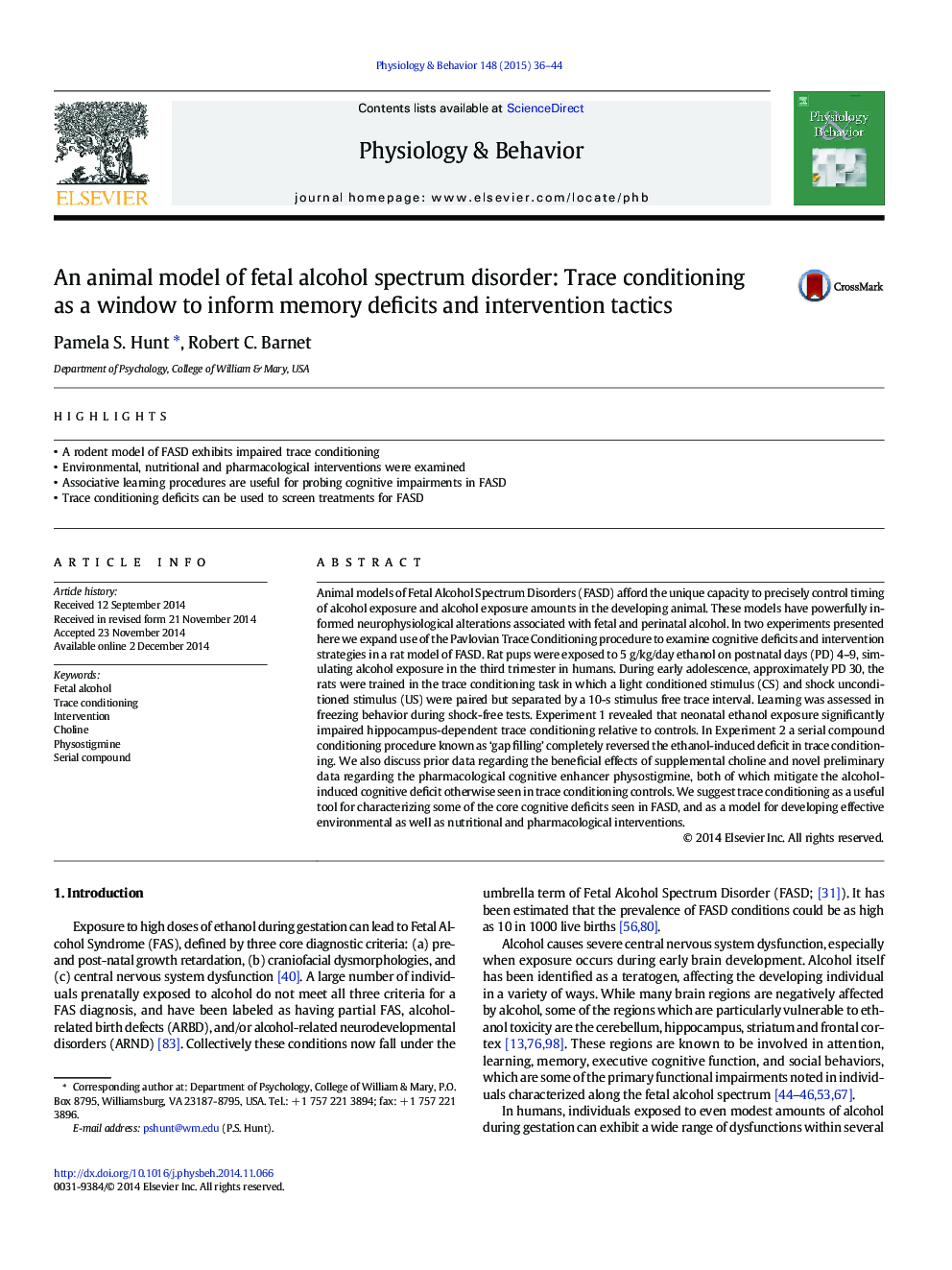| کد مقاله | کد نشریه | سال انتشار | مقاله انگلیسی | نسخه تمام متن |
|---|---|---|---|---|
| 2844091 | 1571169 | 2015 | 9 صفحه PDF | دانلود رایگان |
• A rodent model of FASD exhibits impaired trace conditioning
• Environmental, nutritional and pharmacological interventions were examined
• Associative learning procedures are useful for probing cognitive impairments in FASD
• Trace conditioning deficits can be used to screen treatments for FASD
Animal models of Fetal Alcohol Spectrum Disorders (FASD) afford the unique capacity to precisely control timing of alcohol exposure and alcohol exposure amounts in the developing animal. These models have powerfully informed neurophysiological alterations associated with fetal and perinatal alcohol. In two experiments presented here we expand use of the Pavlovian Trace Conditioning procedure to examine cognitive deficits and intervention strategies in a rat model of FASD. Rat pups were exposed to 5 g/kg/day ethanol on postnatal days (PD) 4–9, simulating alcohol exposure in the third trimester in humans. During early adolescence, approximately PD 30, the rats were trained in the trace conditioning task in which a light conditioned stimulus (CS) and shock unconditioned stimulus (US) were paired but separated by a 10-s stimulus free trace interval. Learning was assessed in freezing behavior during shock-free tests. Experiment 1 revealed that neonatal ethanol exposure significantly impaired hippocampus-dependent trace conditioning relative to controls. In Experiment 2 a serial compound conditioning procedure known as ‘gap filling’ completely reversed the ethanol-induced deficit in trace conditioning. We also discuss prior data regarding the beneficial effects of supplemental choline and novel preliminary data regarding the pharmacological cognitive enhancer physostigmine, both of which mitigate the alcohol-induced cognitive deficit otherwise seen in trace conditioning controls. We suggest trace conditioning as a useful tool for characterizing some of the core cognitive deficits seen in FASD, and as a model for developing effective environmental as well as nutritional and pharmacological interventions.
Journal: Physiology & Behavior - Volume 148, 1 September 2015, Pages 36–44
